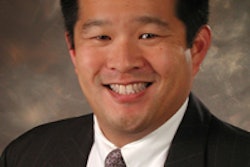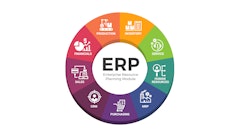Ann Arbor, MI — April 13, 2007 — People should not shy away from globalization but harness it to the benefit of all, says business guru and Ross School professor C.K. Prahalad.
Speaking last week during his Distinguished University Professorship lecture — the highest honor accorded faculty members by the University of Michigan — Prahalad, the Ross School's Paul and Ruth McCracken Distinguished University Professor of Corporate Strategy, said that economic development with social equity is one of the most significant problems facing mankind this century.
His address, "Democratizing Commerce: The Challenge for the 21st Century," highlighted that more than 5 billion people are currently seeking access to the benefits of globalization both as micro-consumers and micro-producers.
In his 2004 book, "The Fortune at the Bottom of the Pyramid: Eradicating Poverty Through Profits," Prahalad contended that private-sector businesses can help alleviate poverty and, at the same time, make a profit by turning the poor into consumers and developing viable markets for innovative products and services in under-served and long-neglected areas.
Beyond Stove Pipes to Stoves
In his talk, he discussed recent research done in the field with India's most impoverished villagers.
"I recently completed my own two-year experiment in rural India with British Petroleum," he said. "I took a BP vice president with me to show him the need for a solution to cooking fuels in all Indian homes. The women in India need a personal, flexible solution that will reduce harmful smoke and increase safety."
By working with villagers, a scalable, intelligent solution was suggested in the form of an efficient combination stove that harnesses biomass pellets and liquefied petroleum gas, based on users' choice and availability.
"Approximately 15,000 stoves were distributed in the pilot," said Prahalad, who projected that 100 million Indian people will be using these stoves over the next few years.
Including the Poorest
Several of his "experiments" around the world involve hands-on research and transitions in thinking. He said that multinational corporations must be willing to learn and invest the time at the highest levels. Getting key people to experience the need of those emerging from poverty is essential.
"I urge you to focus on the inclusion of the poor, research substantive issues and use the convening power of the university to shape the future," he said. "Do some of the same courageous things the European people did at the end of World War II. They looked ahead and imagined a better life. Today, 50 years later, we have a free and stable Europe. I ask this university, then, to imagine a world without poverty."
A business consultant whose client list includes AT&T, Cargill, Citicorp, Oracle, TRW and Unilever, Prahalad is known for giving life to the concepts of "core competencies" and "strategic intent."
His research focuses chiefly on corporate strategy and the role of top management in diversified multinational corporations. His current work addresses complex emerging markets, the world's poor and the innovative business models aimed at helping to end world poverty.
Prahalad was born in Coimbatore in Tamil Nadu, India, in 1941. After studying physics at the University of Madras, he joined Union Carbide. He left four years later to study at the Indian Institute of Management and later received his Ph.D. from Harvard Business School.
Speaking last week during his Distinguished University Professorship lecture — the highest honor accorded faculty members by the University of Michigan — Prahalad, the Ross School's Paul and Ruth McCracken Distinguished University Professor of Corporate Strategy, said that economic development with social equity is one of the most significant problems facing mankind this century.
His address, "Democratizing Commerce: The Challenge for the 21st Century," highlighted that more than 5 billion people are currently seeking access to the benefits of globalization both as micro-consumers and micro-producers.
In his 2004 book, "The Fortune at the Bottom of the Pyramid: Eradicating Poverty Through Profits," Prahalad contended that private-sector businesses can help alleviate poverty and, at the same time, make a profit by turning the poor into consumers and developing viable markets for innovative products and services in under-served and long-neglected areas.
Beyond Stove Pipes to Stoves
In his talk, he discussed recent research done in the field with India's most impoverished villagers.
"I recently completed my own two-year experiment in rural India with British Petroleum," he said. "I took a BP vice president with me to show him the need for a solution to cooking fuels in all Indian homes. The women in India need a personal, flexible solution that will reduce harmful smoke and increase safety."
By working with villagers, a scalable, intelligent solution was suggested in the form of an efficient combination stove that harnesses biomass pellets and liquefied petroleum gas, based on users' choice and availability.
"Approximately 15,000 stoves were distributed in the pilot," said Prahalad, who projected that 100 million Indian people will be using these stoves over the next few years.
Including the Poorest
Several of his "experiments" around the world involve hands-on research and transitions in thinking. He said that multinational corporations must be willing to learn and invest the time at the highest levels. Getting key people to experience the need of those emerging from poverty is essential.
"I urge you to focus on the inclusion of the poor, research substantive issues and use the convening power of the university to shape the future," he said. "Do some of the same courageous things the European people did at the end of World War II. They looked ahead and imagined a better life. Today, 50 years later, we have a free and stable Europe. I ask this university, then, to imagine a world without poverty."
A business consultant whose client list includes AT&T, Cargill, Citicorp, Oracle, TRW and Unilever, Prahalad is known for giving life to the concepts of "core competencies" and "strategic intent."
His research focuses chiefly on corporate strategy and the role of top management in diversified multinational corporations. His current work addresses complex emerging markets, the world's poor and the innovative business models aimed at helping to end world poverty.
Prahalad was born in Coimbatore in Tamil Nadu, India, in 1941. After studying physics at the University of Madras, he joined Union Carbide. He left four years later to study at the Indian Institute of Management and later received his Ph.D. from Harvard Business School.


















